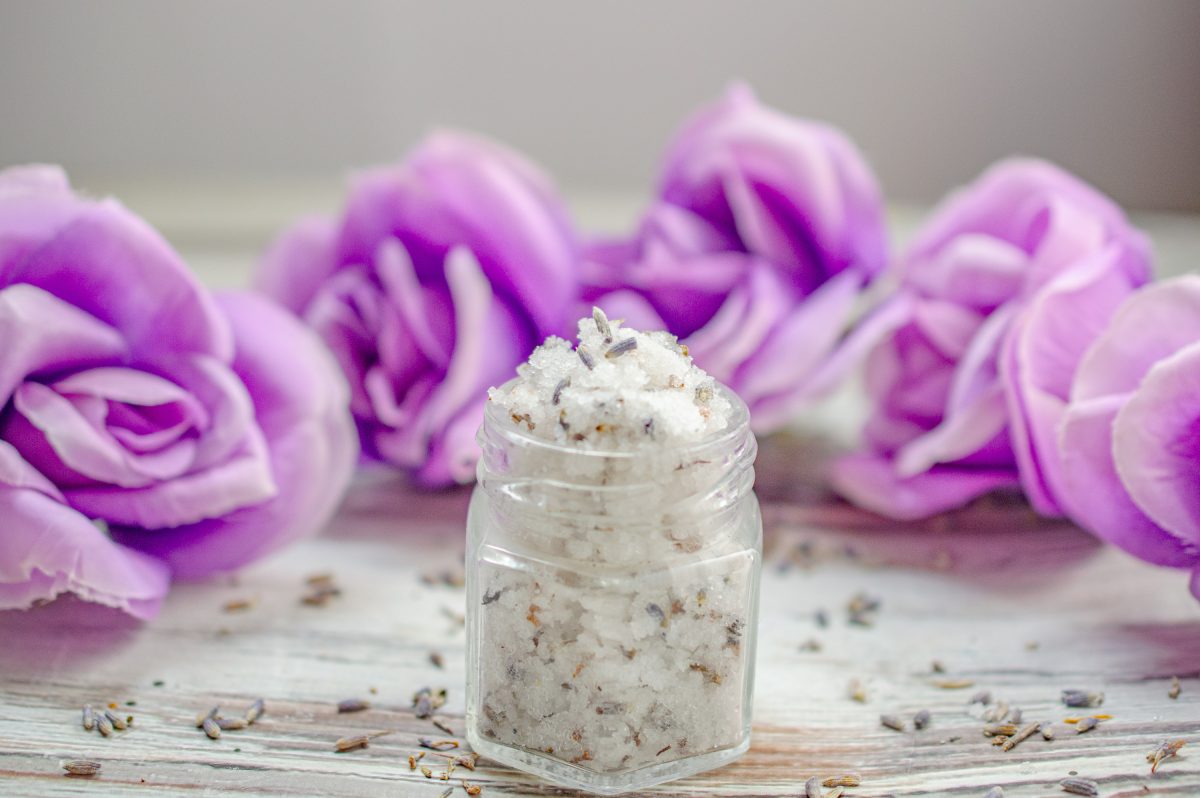Does autoimmune disease run in your family? Learn how the best anti-inflammatory diet can help prevent autoimmune disease development.
.jpeg)
Best Anti-Inflammatory Diet to Help Prevent Autoimmune Disease.
Planning healthy meals for an entire family can get overwhelming and stressful. However, there are many known benefits to maintaining a healthy diet, such as improved heart health, lower risk of developing cancer, a more positive outlook on life, and better sleeping patterns.
Did you know that autoimmune disease prevention is also a benefit of sticking to a healthy diet? More than 24 million people in the United States are living with some form of an autoimmune disease, making diagnosis pretty common.
Many factors play into the development of an autoimmune disease. Family health history, environment, physical fitness, stress levels, and living with other diseases. While these factors cannot always be prevented, there are particular habits and lifestyle changes that one can make to limit their odds of developing an autoimmune disease, one of which is maintaining a healthy diet.
Keep reading to learn how implementing the best anti-inflammatory diet can help keep you and your family protected or slow down the possibility of developing common autoimmune diseases.
Autoimmune Diseases Explained
To better understand the correlation between a healthy diet and autoimmune disease prevention, it’s important to first know what an autoimmune disease is and the symptoms to look out for.
What is an autoimmune disease?
An autoimmune disease is described as a condition that develops as the result of the immune system attacking its healthy cells. Typically, the immune system can verify the difference between its cells and those that are foreign. The body will trigger different responses to get rid of the invading cells and keep itself healthy.
However, in the case of an autoimmune condition, the immune system mistakes healthy cells for foreign cells and sends a signal to attack. Proteins called autoantibodies are released to break down the healthy cells, thus the formation of an autoimmune disease.
The symptoms of autoimmune diseases commonly overlap, causing diagnosis to be difficult. The best way to properly determine if someone has an autoimmune condition is by visiting a doctor to discuss symptoms and have bloodwork done. Typically, a blood test can determine the diagnosis and the doctor can help configure an individualized treatment plan.
In most cases, autoimmune diseases are not curable, but precautions can be taken to limit symptoms and reduce flare-ups.
Common autoimmune diseases
There are over 100 different kinds of autoimmune diseases, but here are some of the most common:
Psoriasis: Over 8 million people in the United States suffer from psoriasis, which is an autoimmune condition in which the skin experiences plaques of scaly, red patches. The skin’s cells grow too quickly and the immune system can not handle the rapid growth, causing painful areas on the skin. There are multiple kinds of psoriasis, but the most common is plaque psoriasis.
Patients who experience psoriasis are not always experiencing flare-ups. They often go through periods of remission in which their symptoms are managed and there are no physical signs of the disease. However, triggers may cause breakouts and end the remission period.
Multiple Sclerosis (MS): Those living with multiple sclerosis experience damage to the myelin sheath. The myelin sheath is the coating that protects the nerve cells in the central nervous system. With multiple sclerosis, the damage of the myelin sheath results in a delayed communication system between the brain and spinal cord to the rest of the body.
The slowed-down transmission of messages causes all kinds of symptoms to the body such as fatigue, numbness, difficulty balancing, and a hard time walking. The progression of MS can occur over many years and lead to a decreased quality of life for many patients.
Type 1 Diabetes: Approximately 30 million people in the United States are diagnosed with type 1 diabetes and experience the disease’s serious effects. This disease causes the glucose levels, also known as sugar, in an individual’s body blood to increase to higher than what is deemed safe.
With type 1 diabetes the immune system destroys its insulin-making cells which are crucial in the process of breaking down food. Those with this condition typically need to take insulin to help their digestive system break down foods, as well as consistently monitor their blood pressure and the number of sugars they consume.
Symptoms of autoimmune disease
With so many kinds of different autoimmune diseases, it can be hard to decipher the difference as the symptoms often overlap.
Common symptoms to look out for include:
- Achy muscles
- Swelling or redness of the skin
- Hair loss
- Skin rashes
- Fatigue
- Tingling in the hands or feet
It’s important to remember that all autoimmune diseases have their own list of symptoms, but the symptoms above are a good place to start if you or a family member are experiencing any. Be sure to visit a doctor if symptoms persist to get a proper diagnosis and treatment plan.
Triggers of autoimmune disease
Research is still being conducted to discover if there is an exact known cause for the development of an autoimmune disease. Currently, there is no known cause as to why the immune system attacks its healthy cells, but there have been discoveries of autoimmune disease triggers that can cause flare-ups.
Common triggers of autoimmune diseases include:
- Genetics
- Infections
- High-stress levels
- Poor diet
- Infrequent exercise
The Importance of Family Health History
There is no exact known cause of the development of any autoimmune disease. It has been discovered that family genetics can play a role in determining if someone is at higher risk of diagnosis for autoimmune disease.
If you haven’t already, speak with your extended family to gather their health history and make note of any important diseases or conditions they may experience. It may not be the most glamorous conversation, but it’s an important step in maintaining proper health.
Typically, your doctor’s office will have a form that asks all of the necessary questions about family health history. Consider filling out a free family health portrait and keeping it handy for your next doctor visit.
For blended families with trouble accessing family history, don’t stress. Sometimes adopted children have health history information in their records but this isn’t always the case. Open adoption cases may allow for biological family contact, so if you’re comfortable contacting a member consider asking them for health history information.
However, do what’s best for you and what makes you and your family most comfortable. If you’re unable to obtain records then be transparent with your doctor and work with them to take the steps necessary to stay healthy. This may mean that a few extra tests will be administered to look further into genetics.
Best Anti-Inflammatory Diet and How It Helps
One of the best ways to reduce the chances of developing an autoimmune disease, especially for families who are more susceptible due to their bloodline, is through an anti-inflammatory diet.
The best anti-inflammatory diet consists of foods that are rich in anti-inflammatory properties to reduce inflammation in the body. Since inflammation is a symptom of many autoimmune diseases it’s important to nurture the body with foods that can minimize swelling and discomfort.
Autoimmune disease friendly foods
If you’re looking for the best anti-inflammatory diet for your family, it’s important to know which foods have the best benefits when it comes to reducing inflammation. The following foods are great ingredients to mix into mealtime:
- Berries
- Broccoli
- Fatty fish
- Green tea
- Avocados
- Extra virgin olive oil
- Cherries
- Mushrooms
Foods To Avoid
Some foods are more prone to cause inflammation that should be limited in your daily intake. To minimize inflammation, consider eliminating the following foods or consuming them in moderation:
- Junk foods
- Fried foods
- Alcohol
- Added sugars
- Processed meats
Best Anti-inflammatory diets
If you’d like a little bit more direction in how to incorporate the best anti-inflammatory diet into your life, try following an already established diet plan like the ones listed below.
Autoimmune Protocol Diet (AIP): The Autoimmune Protocol Diet is the diet for autoimmune disease management and prevention. This diet works to reduce feelings of inflammation, pain, fatigue, and other various symptoms of autoimmune diseases.
Paleo Diet: The paleo diet removes processed foods that are common in the western diet. Removal of the foods, such as sugars, dairy, grains, legumes, and refined oils leads to less inflammation and a more energized feeling. This diet is great for managing an already existing autoimmune condition or limiting the chances of development through anti-inflammatory foods.
Plant-Based Diet: A plant-based diet is a great option for anti-inflammatory results, especially if it consists of mostly anti-inflammatory fruits and vegetables. This kind of diet will help reduce inflammation and also increase the body’s energy levels and overall wellness.
.jpeg)
Healthy recipe ideas your family will love
If you need some inspiration for anti-inflammatory meals, look no further! Here are some recipes to get you started that your family will love:
- 15 Healthy and Easy Meal Prep Bowl Recipes
- 6 Minute Instant Pot Spaghetti Squash
- Healthy Breakfast Burrito
- 15 Healthy Chicken Meal Prep Ideas
Additional Healthy Living Habits
Since autoimmune diseases are not entirely preventable, it’s important to implement other healthy living habits into your family’s routine aside from the best anti-inflammatory diet.
To supplement a healthy diet and better limit the chances of developing an autoimmune disease, consider the following prevention methods as well.
- Exercising daily
- Staying hydrated
- Getting enough sleep
- Taking care of your skin
- Managing stress
Closing Thoughts
Overall, autoimmune diseases are not preventable but with the right lifestyle habits and mindset they can be managed, and the chances of a breakout are less likely to occur. Following the best anti-inflammatory diet is a great step to take in autoimmune disease prevention. Remember to always check with a doctor first before making any impactful lifestyle changes or if you suspect that you or a family member have an autoimmune condition.
What are some of your favorite recipes for anti-inflammation? Leave a comment below!
*Posts may contain affiliate links. If you purchase a product through an affiliate link your cost will be the same, but My Mommy Style will receive a small commission. Your support is greatly appreciated!

You May Also Like:
.jpg)
.jpg)
.jpg)
.png)













This blog post has in-depth knowledge of anti-inflammatory diets for autoimmune disease prevention. Thanks for sharing this informative post. Keep sharing the good work ahead…
Really great share. No money can buy health. Therefore very important. Thanks!